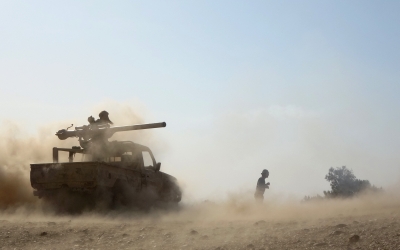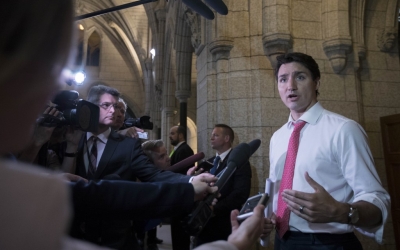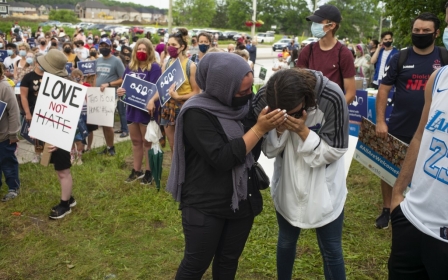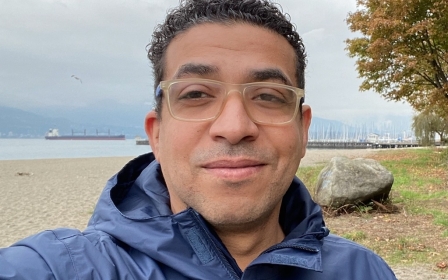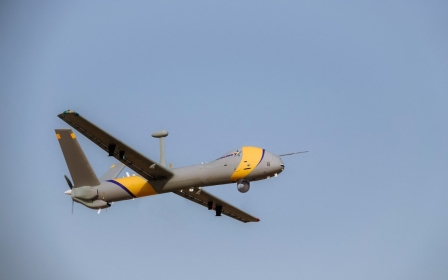Canada accused of prioritising arms sales to Saudi Arabia over human rights
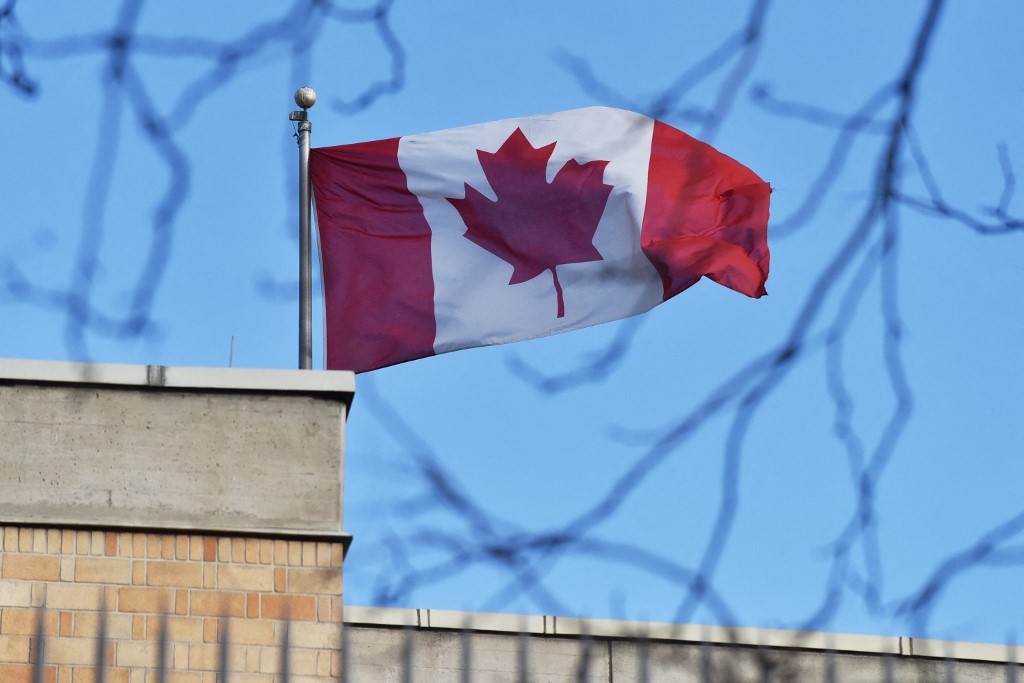
Canada has been accused of prioritising arms sales over human rights concerns in its dealings with Saudi Arabia, rights groups and experts have said.
Cesar Jaramillo, the executive director of Project Ploughshares, a peace research institute of the Canadian Council of Churches, told Middle East Eye that while Ottawa speaks "loudly and proudly of Canada as a beacon of human and womens rights", there was a clear disconnect due to continued arms sales to notorious rights abusers.
"[Canada] touts its commitment to more stringent and transparent arms control regulations at every opportunity. But the gap between rhetoric and reality has become too great to ignore," he said.
According to a report published last week by Project Ploughshares and Amnesty International Canada, Prime Minister Justin Trudeau's government was accused of violating the Arms Trade Treaty (ATT), an international agreement that seeks to regulate the international arms trade and prevent the misuse of weapons, with sales of advanced weaponry to Saudi Arabia.
The rights groups said Canadian weapons transfers to the kingdom could be used to commit or facilitate violations of international humanitarian and human rights law - particularly in the ongoing conflict in Yemen.
"It has been established through investigations and expert reports that Canadian weapons exports to [Saudi Arabia] are contrary to Canada's legal obligations under the ATT," the report said.
Yemen has endured years of chaos since 2014, when Houthi rebels seized the capital and ousted President Abd-Rabbu Mansour Hadi from power.
Saudi Arabia and its allies intervened in March 2015 to prop up Hadi's beleaguered government, and have since carried out more than 20,000 air strikes, with one-third striking non-military sites, such as schools and hospitals, according to the Yemen Data Project.
"These flagrant contradictions would be laughable if they weren't too harmful to the very objectives Canada purports to champion. The fact that Canada is still arming this human-rights pariah is not evidence that the case for halting such arms exports is flawed, but that Ottawa has obstinately refused to listen," Jaramillo said.
He added that it was hard to understand how or why the prospect of economic penalties would override the Canadian government's obligation to uphold the law, especially when it came to denying export permits for weapons with a clear potential of being misused, which he said was undoubtedly the case with Saudi Arabia today.
"Canadians have been fed the falsehood that Saudi Arabia is a force for stability in the region as a reason to justify continued arms sale there, but the evidence points to the exact opposite, including the reality that Saudi Arabia has been the chief architect of the catastrophic humanitarian crisis in Yemen," Jaramillo said.
According to a recent UN estimate, at least 233,000 people have died in the war, while millions more have been pushed to the brink of famine.
In light of rising civilian casualties, and the murder of Saudi journalist Jamal Khashoggi, the Trudeau government put a moratorium on new export permits to the kingdom in 2018.
But in 2019, Canada sold "a record amount of military hardware" to Riyadh, worth approximately $2.2bn. These included light armoured vehicles (LAVs), artillery systems, and heavy machine guns.
The moratorium concluded in April 2020, with Ottawa saying it had made improvements to the LAV contract and pledging to evaluate each and every future military export permit.
In 2020, Canadian arms sales dropped, fuelled by a more than $1bn decrease in sales to Saudi Arabia compared with 2019.
End-user requirements
Exporters of weapons systems often require guarantees, known as end-user agreements, that state the government to which they are selling arms do not subsequently pass them on to a third party.
This is, among other things, to protect the intellectual property and technology of their systems and to reduce the risk of them becoming compromised or falling into the wrong hands.
The United Arab Emirates, which was Saudi Arabia's main ally throughout much of the Yemen war in its early years, reportedly supplied US-built Mine-Resistant Ambush-Protected (MRAPs) vehicles to allied Yemeni militias, according to CNN.
If this was the case, Abu Dhabi would have been in clear violation of the end-user requirements under which the US sold these military vehicles.
Canada sold Turkey an advanced camera and target acquisition system built by L3 Harris WESCAM from Burlington, Ontario.
'Canada has to balance this desire to control the end-user of its military technology, and hold [them] accountable'
- Nicholas Heras, Newlines Institute
The system was reportedly fitted onto Turkish-built Bayraktar TB2 drones that were exported to Azerbaijan without Canada's authorisation and used by Baku in its war against Armenia over the disputed Nagorno-Karabakh region last year.
After Ottawa discovered this, it suspended several export permits for military equipment to Turkey in retaliation to Ankara’s alleged violation of their end-user agreement.
Sellers of weapons, particularly from Western countries, say they would rather not see them used for offensive military operations or wars. For example, the administration of Joe Biden considered only selling Saudi Arabia "defensive" weapons, given the kingdom’s extensive use of US-supplied military hardware in its Yemen campaign.
"International human rights organisations like Amnesty International have deep concerns that Canadian supplies are at risk of being used in the [Yemen] war," Davut Akca, expert at the Orion Policy Institute and Researcher at the University of Saskatchewan, told MEE.
He pointed to a statement from a UN panel in 2020, which said: "Britain, Canada, France, Iran and the United States continued their support to the warring sides including through arms transfers, thereby helping to perpetuate the conflict" in Yemen.
"This year, we added Canada because there has been an uptick in arms sales by Canada in 2019," said Ardi Imseis, a member of the panel.
Balancing market share and human rights
Nicholas Heras, senior analyst and program head for state resilience and fragility at the Newlines Institute, argued that Canada finds itself "caught between a rock and a hard place in regard to its arms industry".
"Ottawa believes that it can be a bigger player in the international arms market, not through sheer industrial capacity, but through the quality of the weapons systems and components for military applicable hardware that it produces," he told MEE.
He credited Canada with at least trying to "privilege human rights concerns when processing arms sales, even to their biggest arms trade partner, the United States".
At the same time, however, that means when purchasers of Canada's military hardware use their new weaponry in unpopular wars the "glare of scrutiny is harder on Ottawa".
"The Canadians will argue that military hardware sold to Saudi Arabia is not meant to be used inside Yemen, but instead for helping the Saudis maintain the integrity of their territory, and in the confusing nature of the cross-border war between Saudi Arabia and the Houthis, the line gets blurred," Heras said.
Canada's primary concern when selling military hardware and accompanying components is "that there is no other end-user than the purchasing nation".
Consequently, Ottawa had no problem selling the target acquisition system to fellow Nato member Turkey, but was angered when Ankara transferred that hardware to Azerbaijan, which isn't a Nato member, for use in the Nagorno-Karabakh war, which was unpopular in Canada.
On the other hand, Heras explained, Turkish use of Canadian technology in armed drones that actively participated in conflicts in Iraq, Syria, and Libya did not have the same "political resonance".
"In fact, the case of Iraq can be sold as helping a Nato ally to fight a terrorist group, in Syria to protect the vulnerable population of Idlib from Assad, and in Libya to support the UN-backed government against Russia," he said.
"The tension is that Canada has to balance this desire to control the end-user of its military technology, and hold those end-users accountable for potential human rights violations or war crimes that may be facilitated by its military technology, with the reality that Ottawa does not want to lose market share."
Middle East Eye propose une couverture et une analyse indépendantes et incomparables du Moyen-Orient, de l’Afrique du Nord et d’autres régions du monde. Pour en savoir plus sur la reprise de ce contenu et les frais qui s’appliquent, veuillez remplir ce formulaire [en anglais]. Pour en savoir plus sur MEE, cliquez ici [en anglais].


